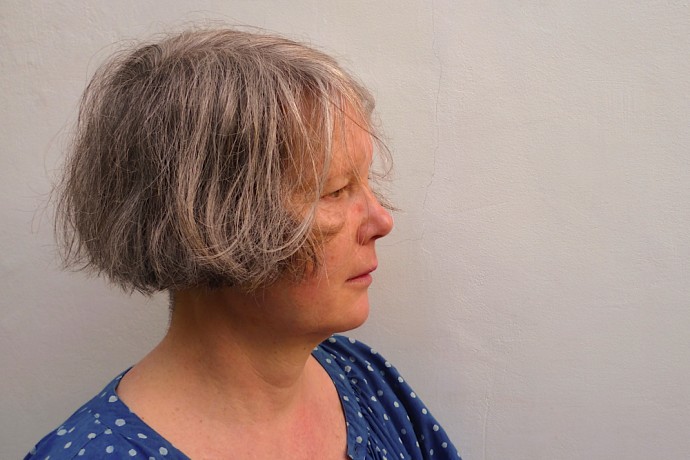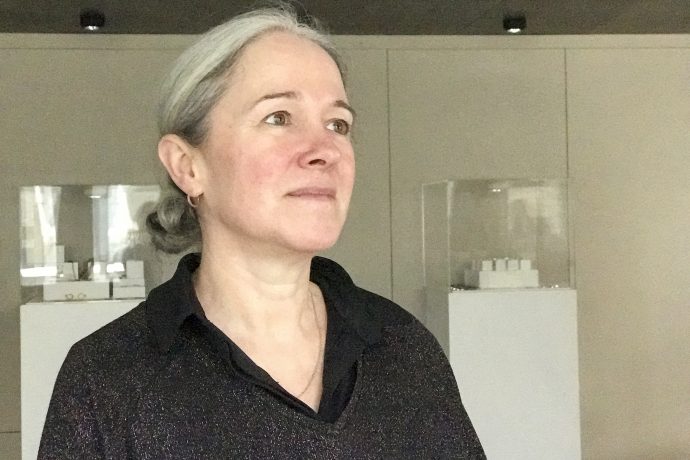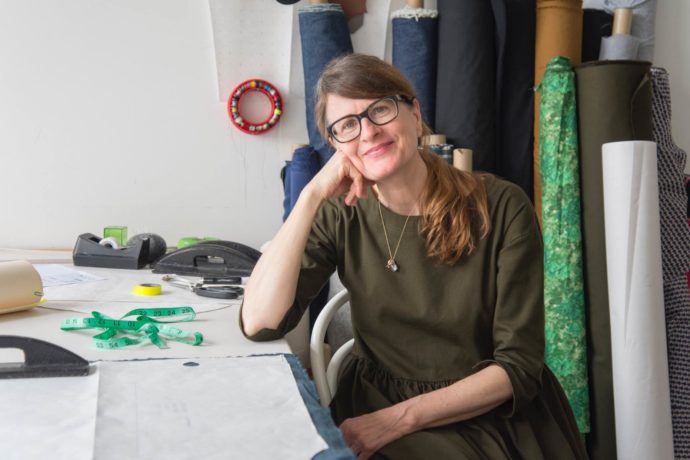Cecilie Telle: Queen of the Handwork “It” Bag
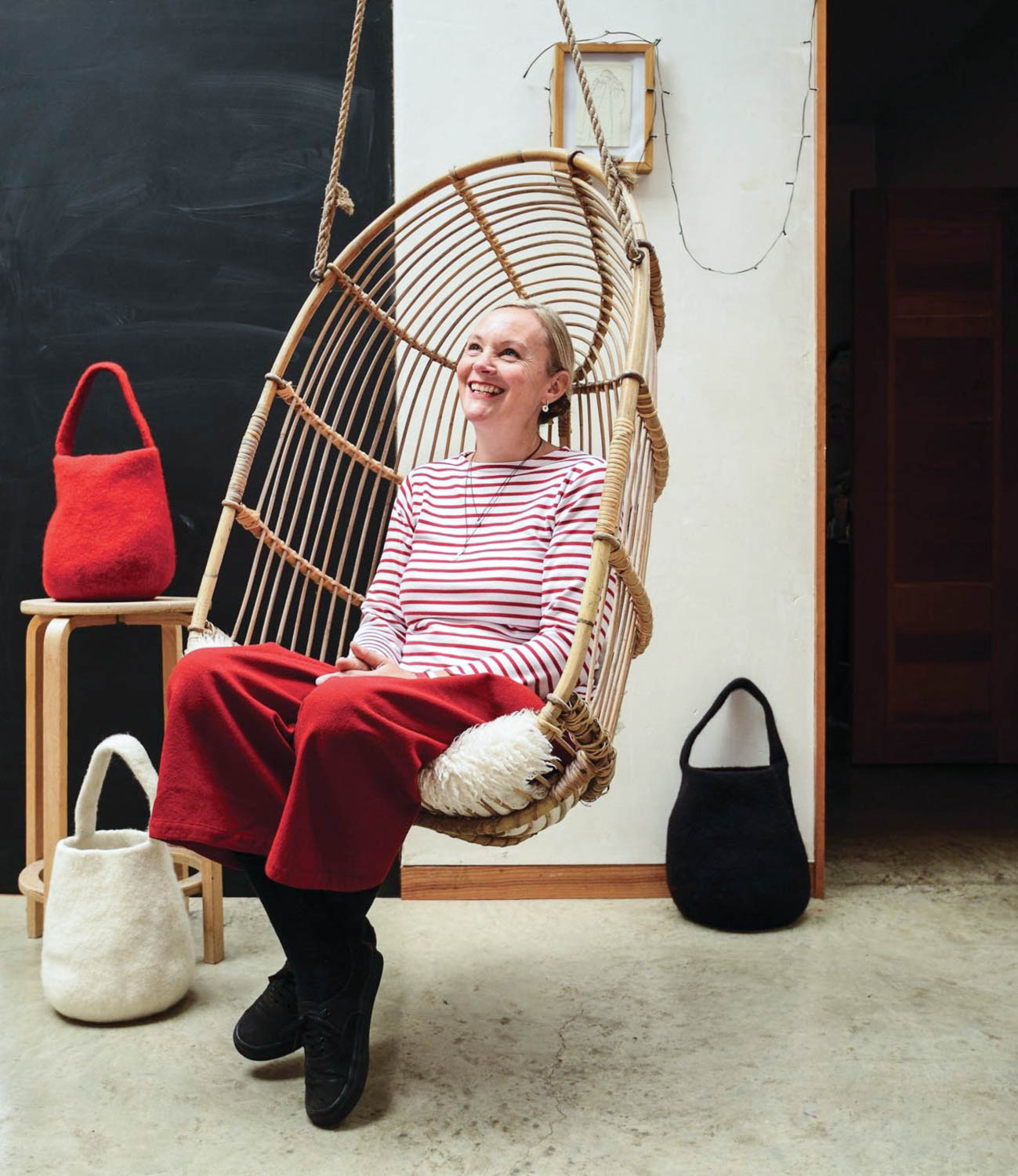
Who? Cecilie Telle
What? Designer/Maker and Super Educator of all things creative
Where? CecilieTelle.com — Handmade felted wool accessories
Why? Celebrating human connection through the hand made
Cecilie Telle’s Ball and Bucket Bags, hand made with her signature felted wool, are like “it” bags for the cognoscenti of the crafting world. Lovely to touch, easy to use and distinctively striking, they are like carrying around a grown-up version of a cuddly soft toy. The first time I saw one of these bags, I was immediately drawn to the maker who created them and so I contacted her. And to my delight, she was as friendly as her bags would lead you to believe.
Creativity has always been a part of Cecilie Telle’s DNA. Growing up in Norway where knitting and making things are an integral part of a culture where handwork skills are passed down from generation to generation, she knits and makes as naturally as she breathes. Cecilie started her knitwear business in 1998 after the birth of her first daughter when she realised that life as an artist was not going to generate a stable enough income for her family. Searching for an alternative income stream so that she could fit it in around raising her daughters and staying home with them before they started school, she decided to do a machine-knitting course, which changed her life forever. “I had two amazing teachers who inspired me to start my own business,” she says. “They helped me to develop what have become my signature three dimensional patterns with the technical skills I did not have.”
As soon as she had a few products ready to sell, she went to see The Designers Guild who scooped her bags up immediately. She has since sold her products with Carin Mansfield of University Utility, Egg and Mouki Mou. Just a few weeks ago, she delivered her bags to Dover Street Market for the run up to Christmas!
Alongside designing and making, Cecilie has also been passionate about passing her handwork skills onto the next generation. She started with her two daughters when they were young and then in 2010 after they were in school, she qualified as a Steiner teacher, began teaching handwork at St. Paul’s Steiner School and then co-founded the Handwork Course with Sevim Metin at Three Seed Garden — a course for those with an interest in craft and want to teach it to children. On a recent visit to Cecilie’s studio in North London, we talked about how creativity can give us freedom and why teaching children not to be afraid of making mistakes is at the top of her agenda.
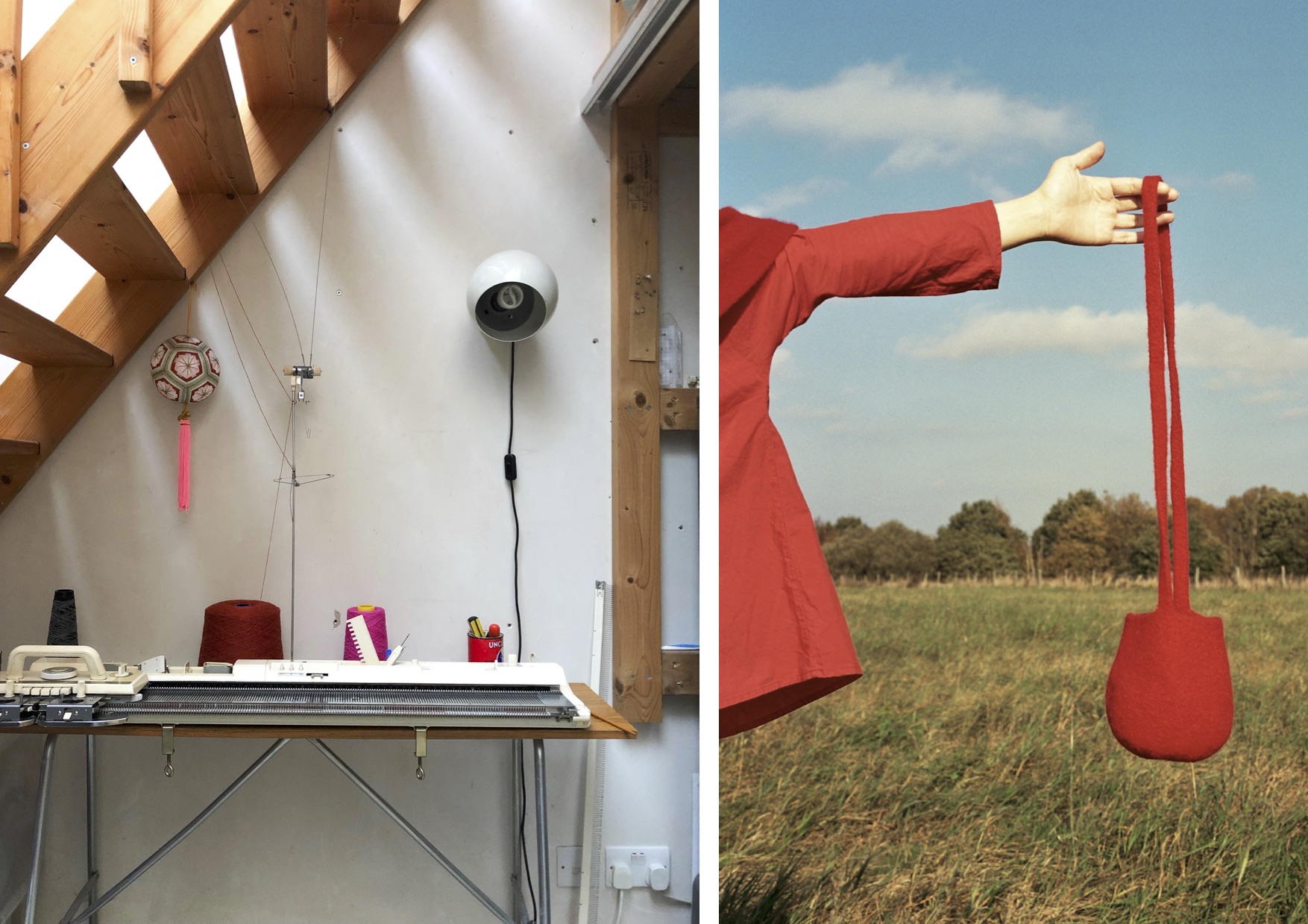
Fabulous Fabsters: What’s up with you and knitting?
Cecilie Telle: I am passionate about knitting — always have been even through my two art degrees. In my Fine Art Printmaking degree show at Chelsea in 1995, amongst other textile related pieces, I knitted a “never ending” red sleeve that went from floor to ceiling and left the knitting needles in as part of the work. And then for my MA in Fine Art Tapestry at the Royal College of Art, I knitted a jumper for a sheep made out of its own wool, which I carded, spun and then knitted. I used to sneak into the knitting department at the RCA because I was desperate to learn how to use the knitting machines they had which were reserved for the textile department.
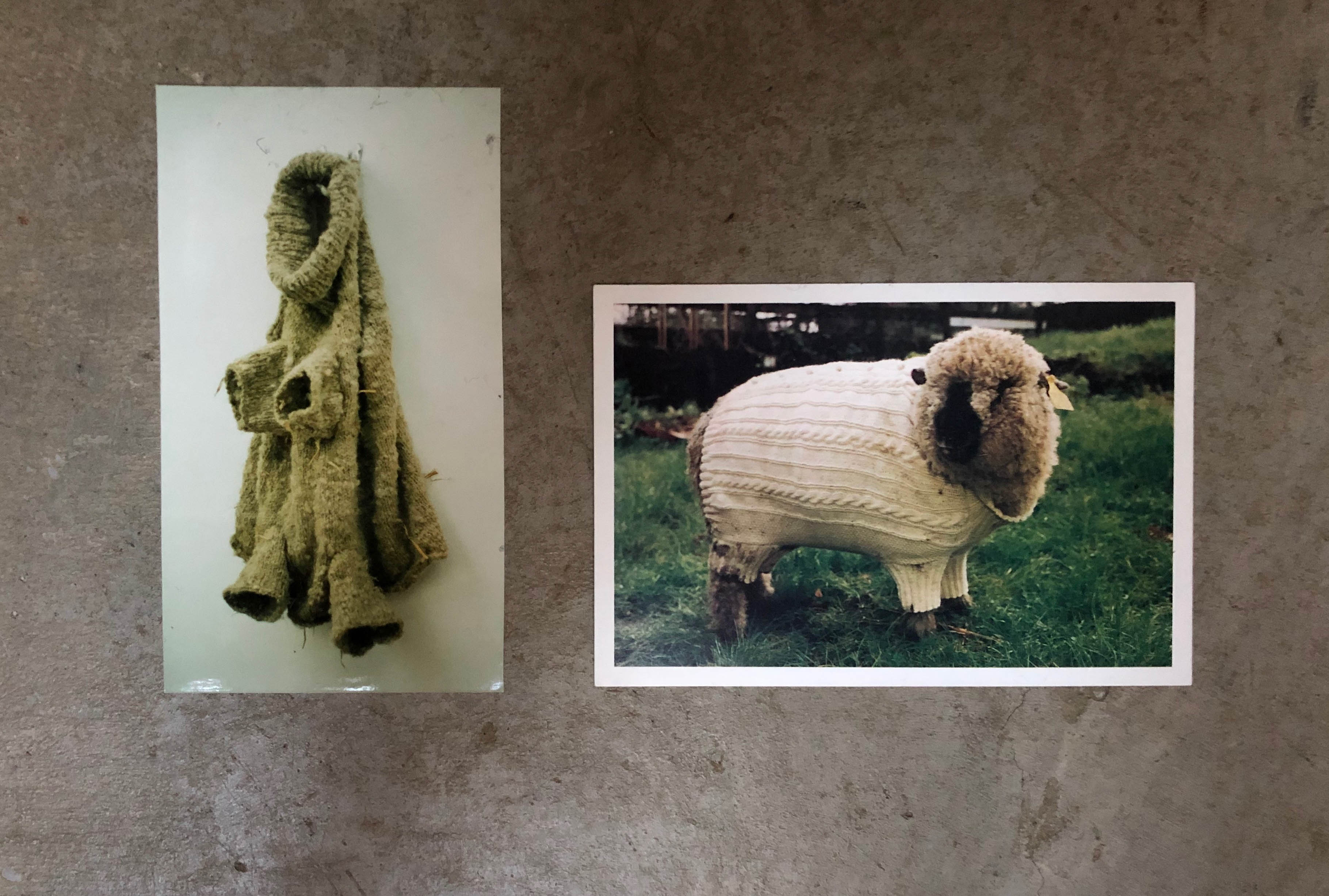
FF: Why is handwork important to you?
CT: I saw a wonderful piece by Ai Weiwei a few years ago, which made a deep impression on me. It was a room full of wooden stools. Hundreds, all with the same form, but all uniquely different as they were all made by different hands. To me, you could see and feel the hands involved in making the chairs. It was incredibly powerful and beautiful. When I make something I feel a human connection — that the hands involved can be seen or felt in the final product. This is very important to me in my work because it means that each piece is unique and cared for.
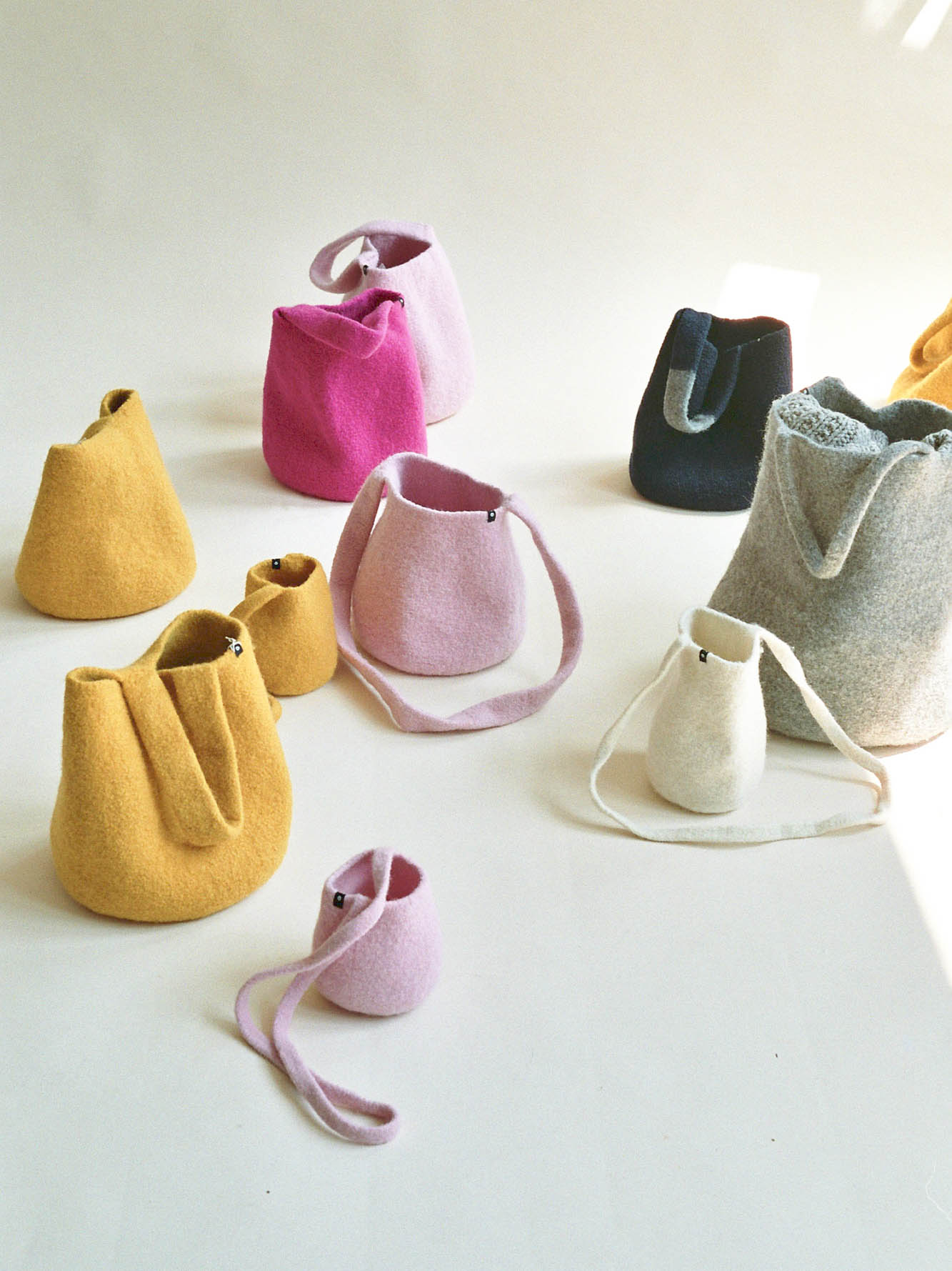
FF: Are all of the pieces in your collection handmade?
CT: Yes, everything I produce is made by hand and every product will have passed through my hands. I have tried putting things into production, but felt that my work lost something in the process, and did not fit in with how I see my work. I have a small group of knitters who help with big orders. They are amazing and I could not manage without them.
FF: How did you come up with the rounded shape for your bags?
CT: When I was 8, my family spent a year in Kenya and I bought my first basket there. I have had a love of rounded forms from an early age and baskets are the inspiration for my bags.
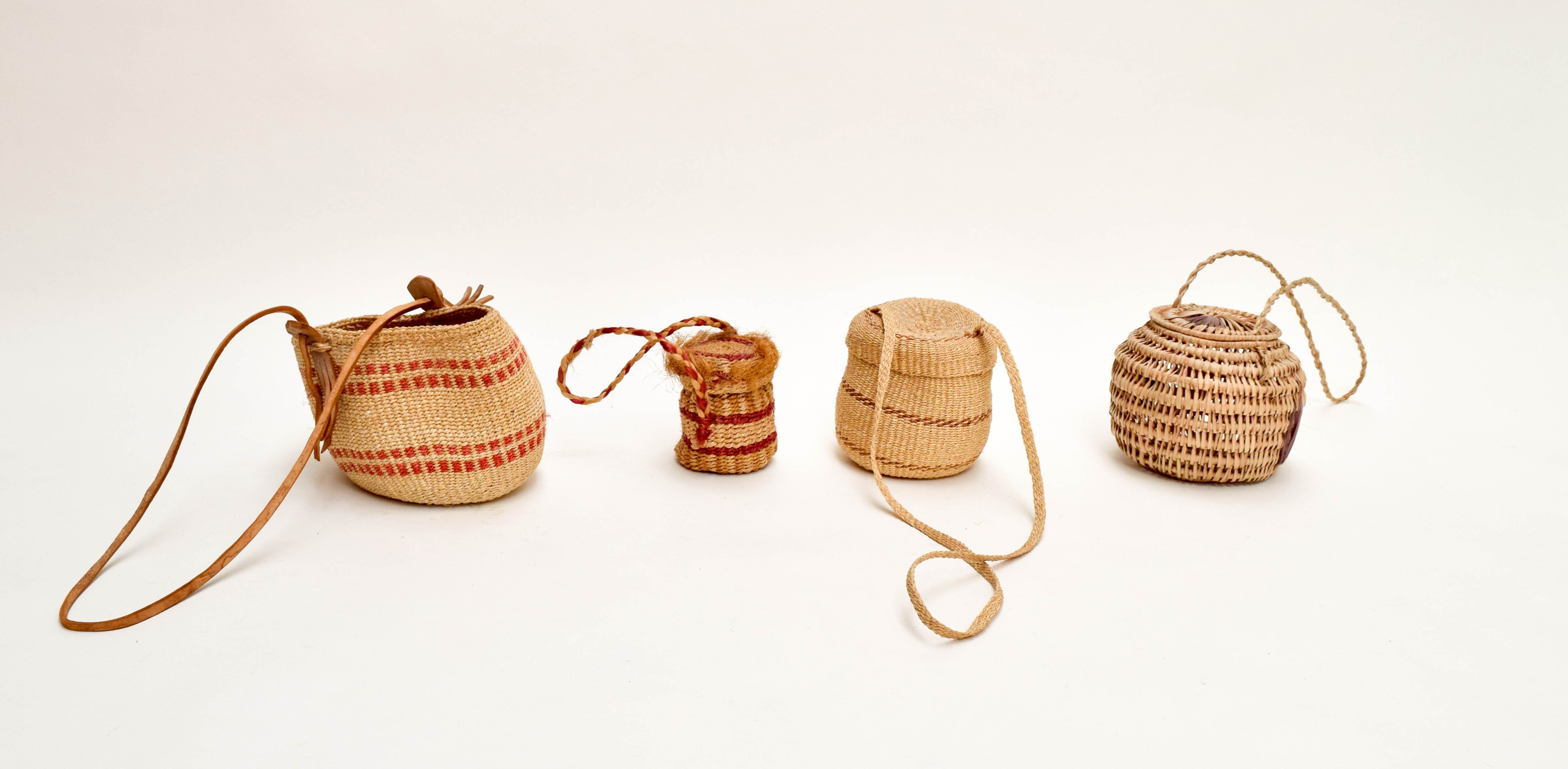
FF: Please tell us a little more about how your childhood in Norway influenced what you do now.
CT: Making and creating something were a big part of the world in which I grew up. If you see something you need and don’t have it, why not make it? This line of thinking is a wonderful path to becoming independent because it frees us from having to pay someone else to make or fix something. In my grandfather and father’s generations, they could all work with their hands. They fixed cars, built houses, made clothes and grew food. We have lost so much of this and for me that means we have lost a part of our freedom. Gandhi re-introduced hand spinning to the people of his country to set them free. Making and creating can be a really powerful tool — a means to making a living and a way to bring people together. Sharing skills and passing them on is a very grounding way to think about our life on earth.
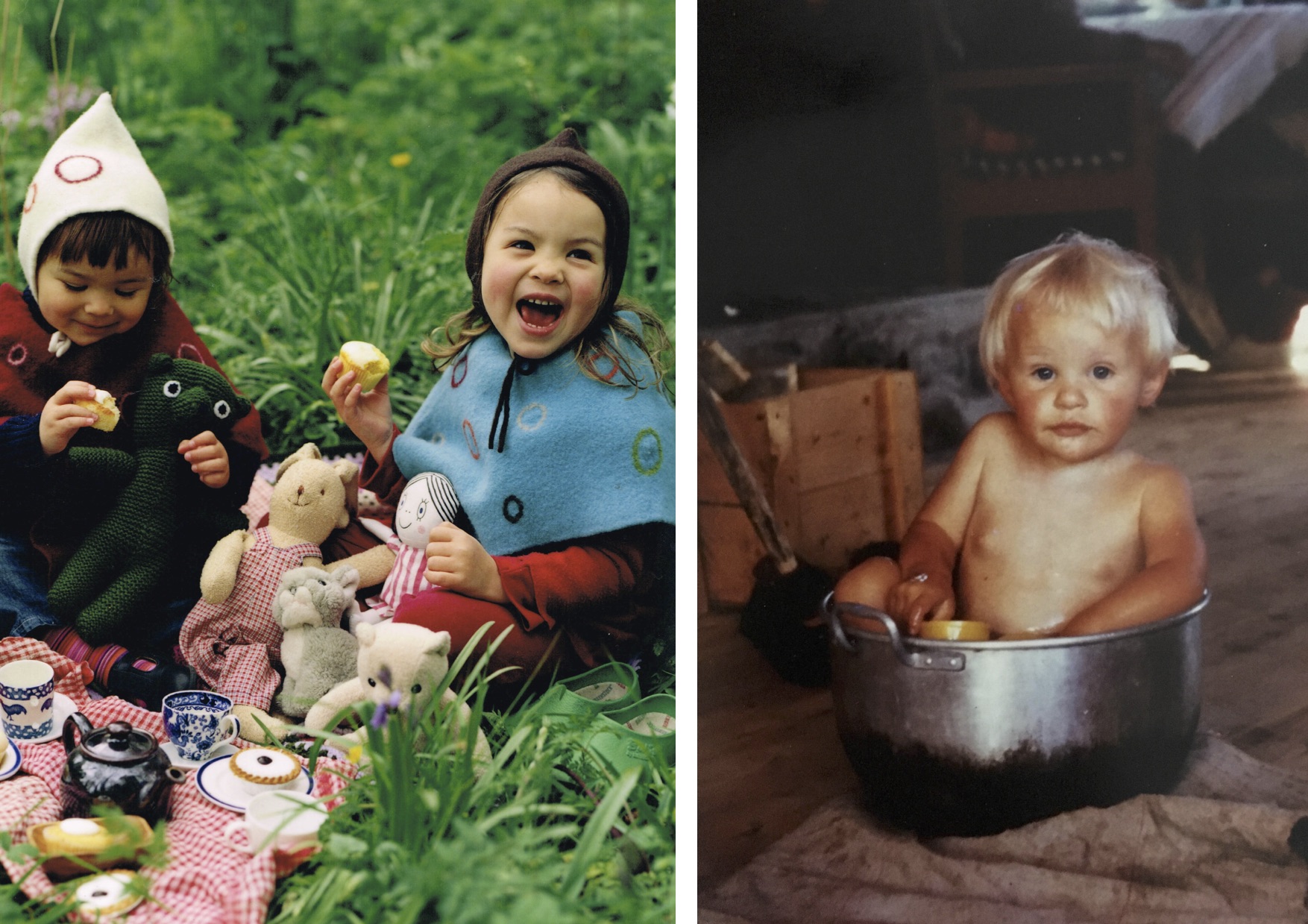
FF: And as an educator of children, why do you think it’s important to pass these skills on to them?
CT: I believe that teaching handwork to children gives them vital life skills that balance out everything they are experiencing through our technology heavy world today. It helps them to connect to the real world we live in and gives them a deep understanding of where we come from and who we are.
FF: And mistakes? What do you want children to learn from them?
CT: We teach children to make lots of mistakes and not be afraid of them. After all, we learn more from our mistakes than anything else. They are amazing in that they can take you in a new more exciting direction than the one you were originally going in. When a child makes a mistake and is able to fix it or work with it, they learn an important life lesson. They own the mistake and their experience of working through it. This lesson is something they can always draw from later because it stays with them forever. The more mistakes you make the more confidence you have that you can work through whatever comes your way. This is very empowering.
FF: What was your greatest mistake?
CT: My little knitted sample that I put in the wash by mistake at the Royal College of Art started my journey with felted wool and it’s what paved the way of my own business.
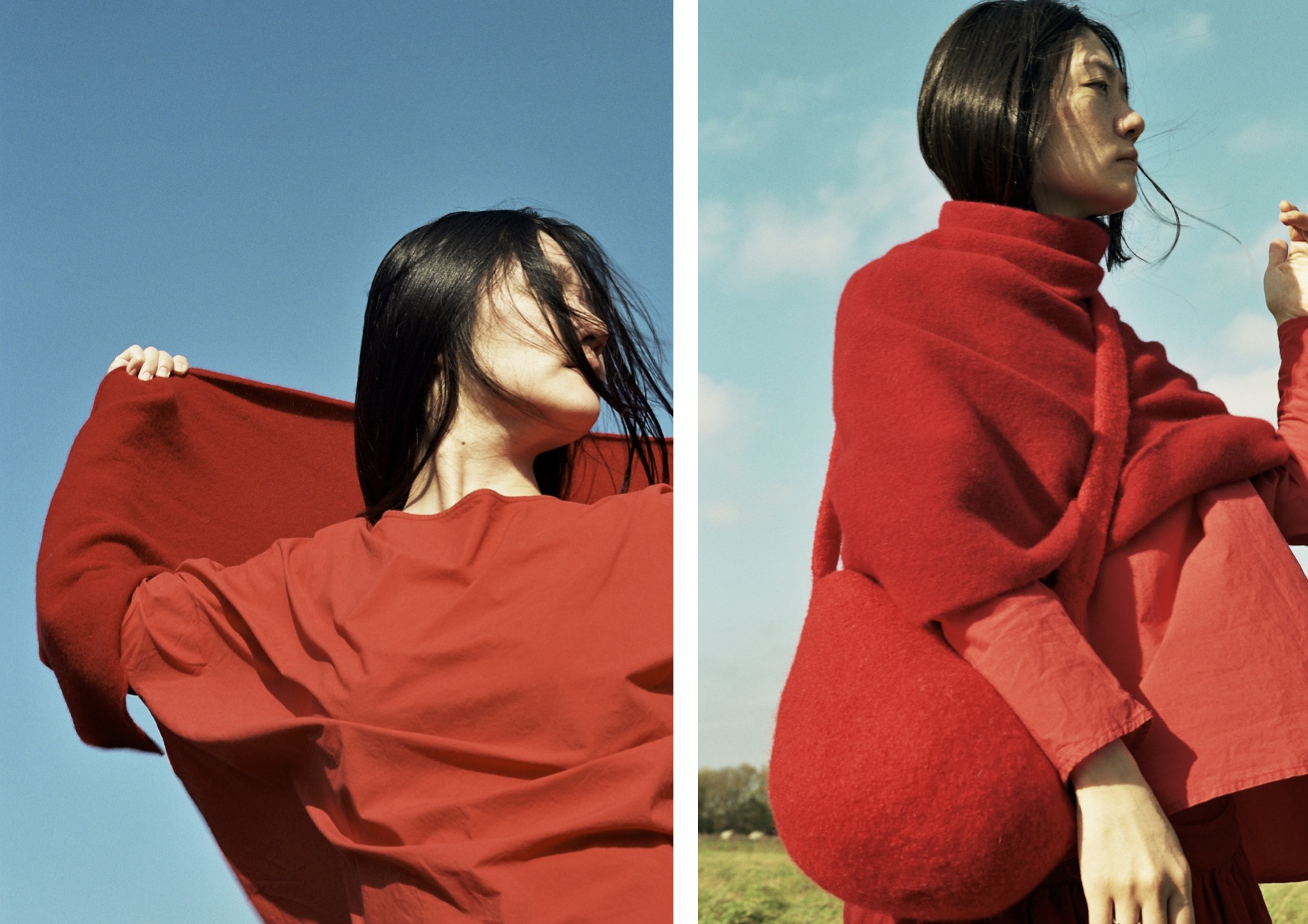
FF: Any Wardrobe Wisdom?
CT: I LOVE clothes but don’t often buy them. I still wear things that I had when I was 18. A good pair of Levi jeans and a jacket from Old Town is mandatory. I have a good collection Universal Utility from Carin Mansfield, some pieces are almost 20 years old. The longevity of her clothes, fabrics and styles is impressive. If there’s something missing from my wardrobe, I will buy fabric from The Cloth House and get Jackie Parsons from Scobel Cothing or Christina Figur Verden to make it.
FF: What’s in your Prescient Pantry?
CT: Tea, popcorn and white wine. But my Japanese husband is an amazing cook so this is what we always have in the house — soy sauce, mirin, sake, miso, dashi, spring onion, garlic ginger, and kombu.
FF: How do you stay strong and well in your body and mind?
CT: Talking with my wonderful husband, family and friends. Yoga stretching daily, outdoor swimming at any opportunity in the sea or in lakes, knitting, making and walking for long periods of time in nature, especially the mountains.
FF: If you have any messages to your younger self, what would they be?
CT: To observe and listen better to others.
FF: Besides your family, what do you hold most dear to your heart?
CT: Freedom, beauty and adventure.
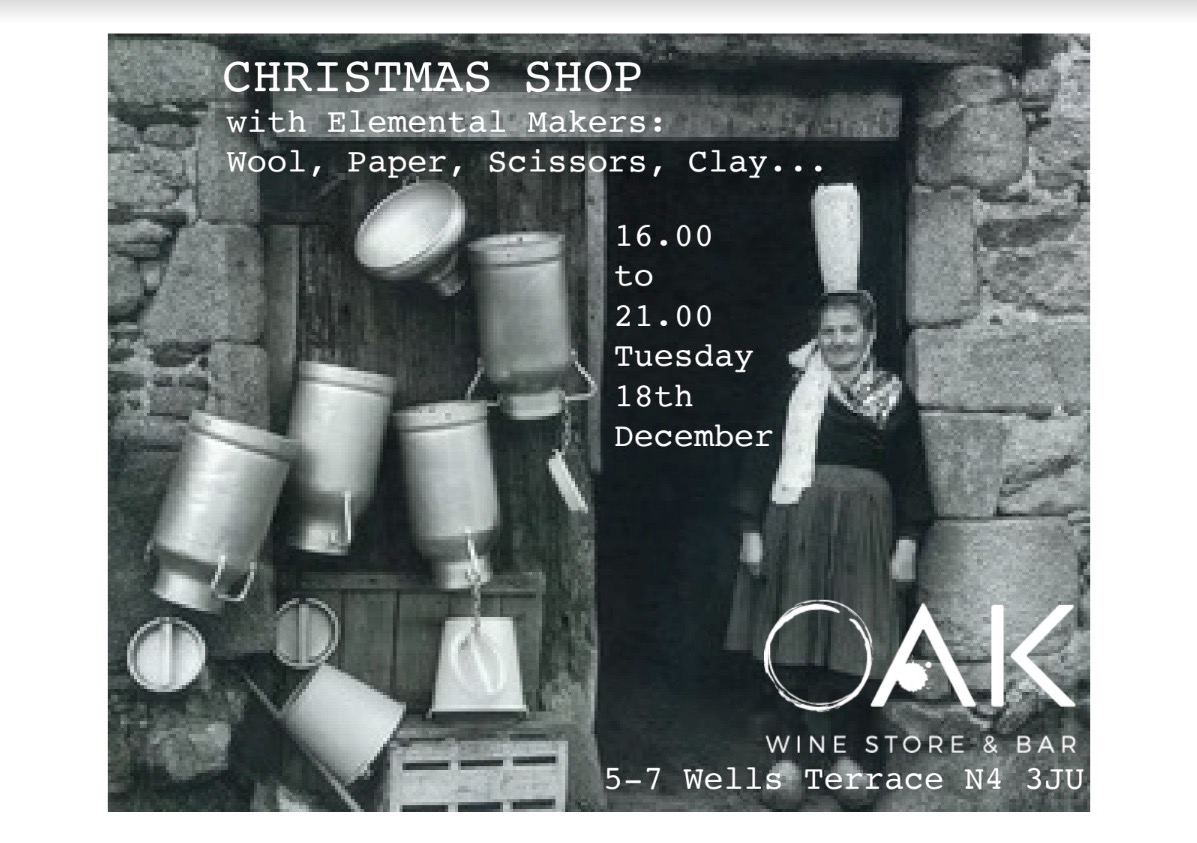
A Fabulous Fabster thank you to Cecilie Telle!
